Tropical beaches and peaceful backwaters aren’t what I think of first when reflecting on my travel in Kerala, India. Here’s what is… and how you can experience it, too.
Clinton didn’t look like he’d adventured on the high seas.
In retrospect, the name of his Fort Kochi homestay—Aldo’s Ark—was a bit of a giveaway, but I wouldn’t have guessed on my own. His solemn face, sharpened by a salt and pepper goatee, evoked more notions of a stern teacher than a hardened sailor. His hospitable attitude did the opposite: every morning he asked what I was up to, reminding but never pressuring me that if I ever needed help, he was there.
But, like most privileged tourists too preoccupied with the shiny surface to consider what lies beneath, I was too engrossed in Fort Kochi’s sights to ponder Clinton’s backstory.
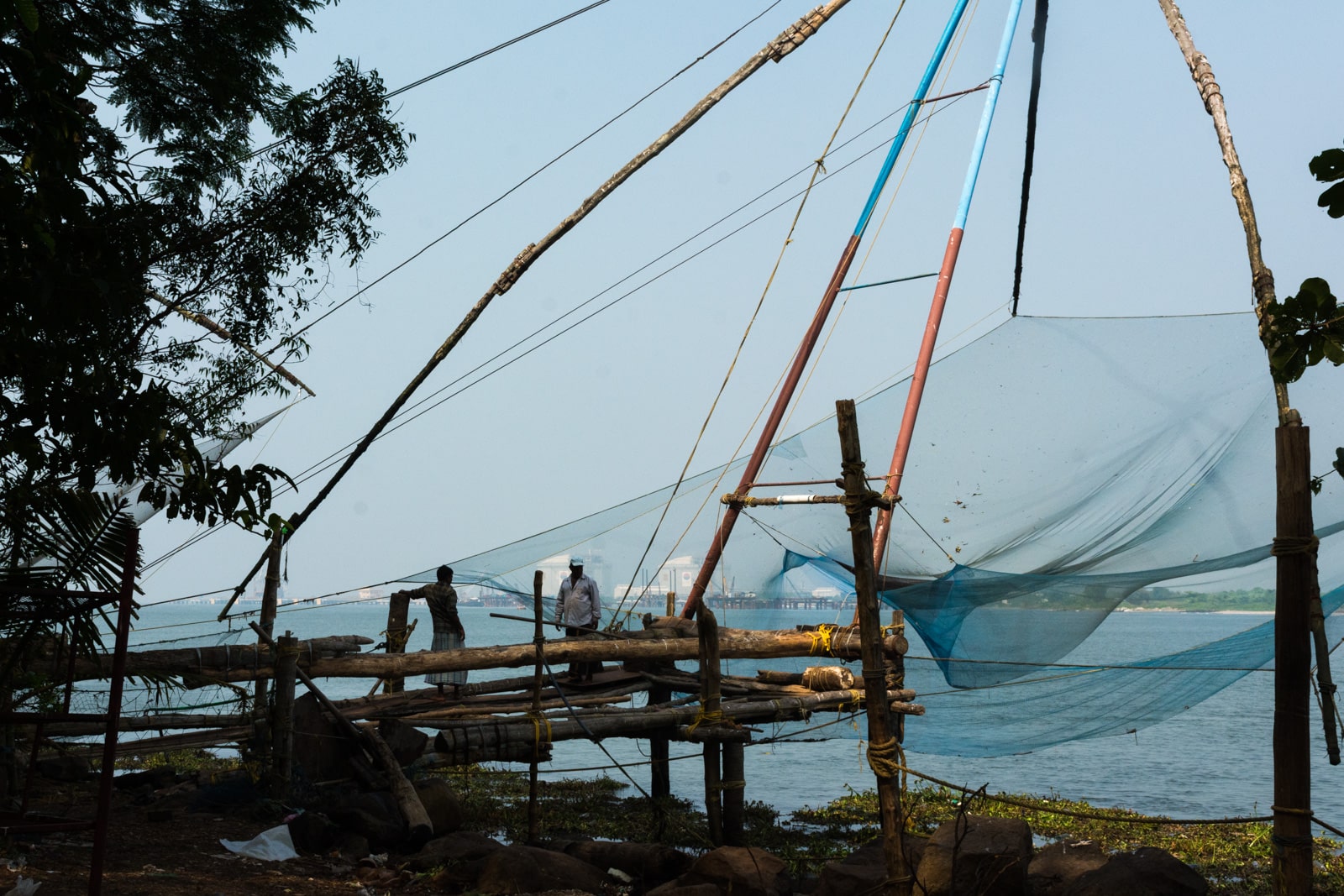
Fishing nets in Fort Kochi
On my last night in his homestay, his origins emerged: in his youth, he pursued his passion for travel by working on shipping vessels. He shared a claustrophobia-inducing tale of how he first made it aboard—we’ll leave those details off the record—and the sparkle in his eyes made me smile as he recounted experiences ashore in countless countries, plus the quirks of crewmates from countless more.
Clinton’s stories seemed oceans away from the reassuring squish of armchairs and stability of cabinets full of trinkets in his living room, yet his humble demeanor left little room for doubt.
His story was still on my mind the next morning as I hefted my backpacks and stepped into Fort Kochi’s humidity one last time. Gazing at the plain white walls of Clinton’s home, I was struck by the thought that, like Clinton himself, the simplicity of his home belied the extraordinary story within.
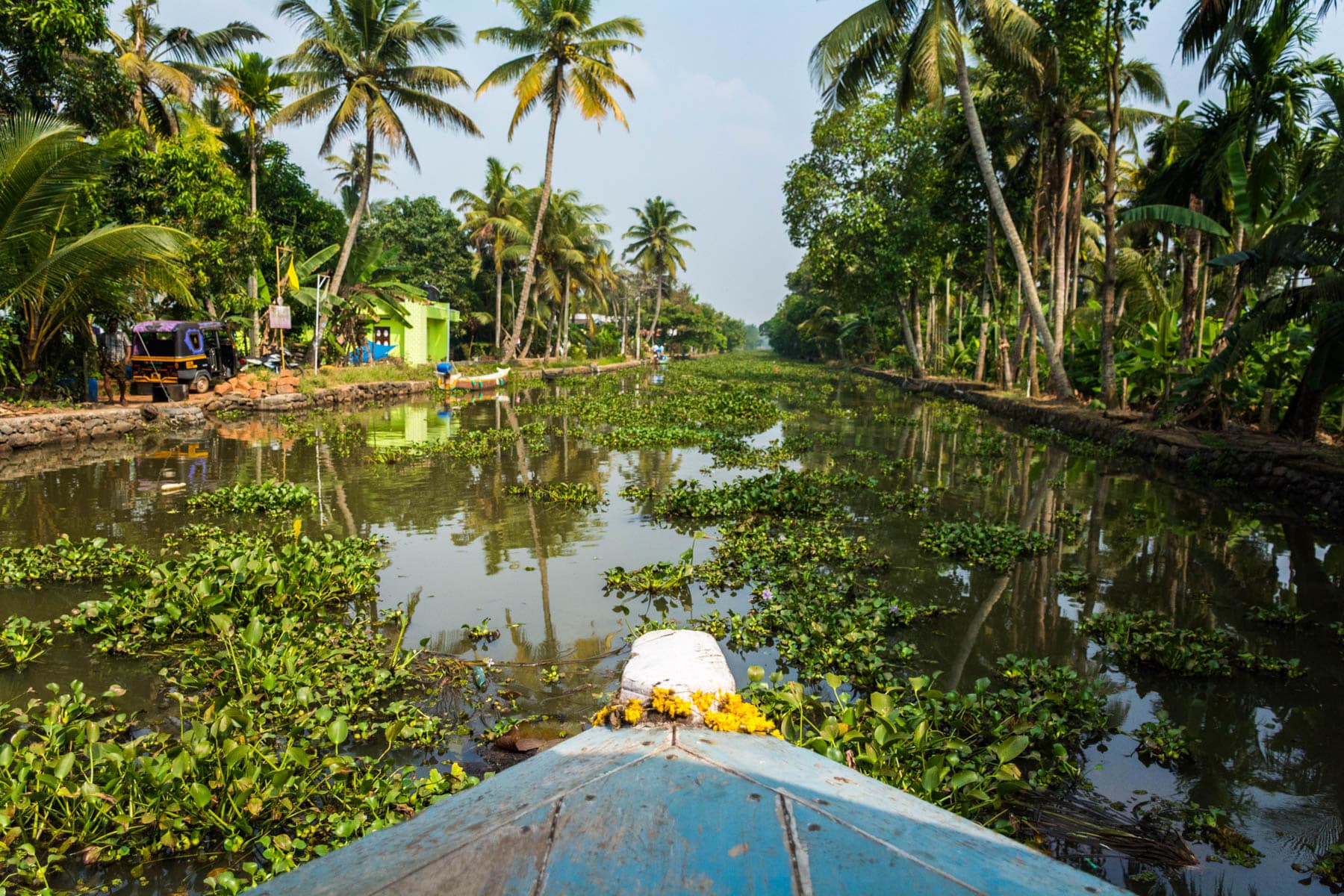
The backwaters of Alleppey
Tiny tales
That wasn’t the last time I had that thought in Kerala; it soon resurfaced to float alongside me. Literally.
Alleppey’s backwaters are one of Kerala’s most famous attractions. Tourists pile into brightly-colored motorboats and luxurious wooden houseboats, lounging in comfort as they putter along canals canopied with palm fronds, past wooden boats piled high with sacks of rice, bottles of beverages, baskets of fish, and everything between.
My budget was too meager for the lap of luxury, so I ended up in the next best option: local ferries.
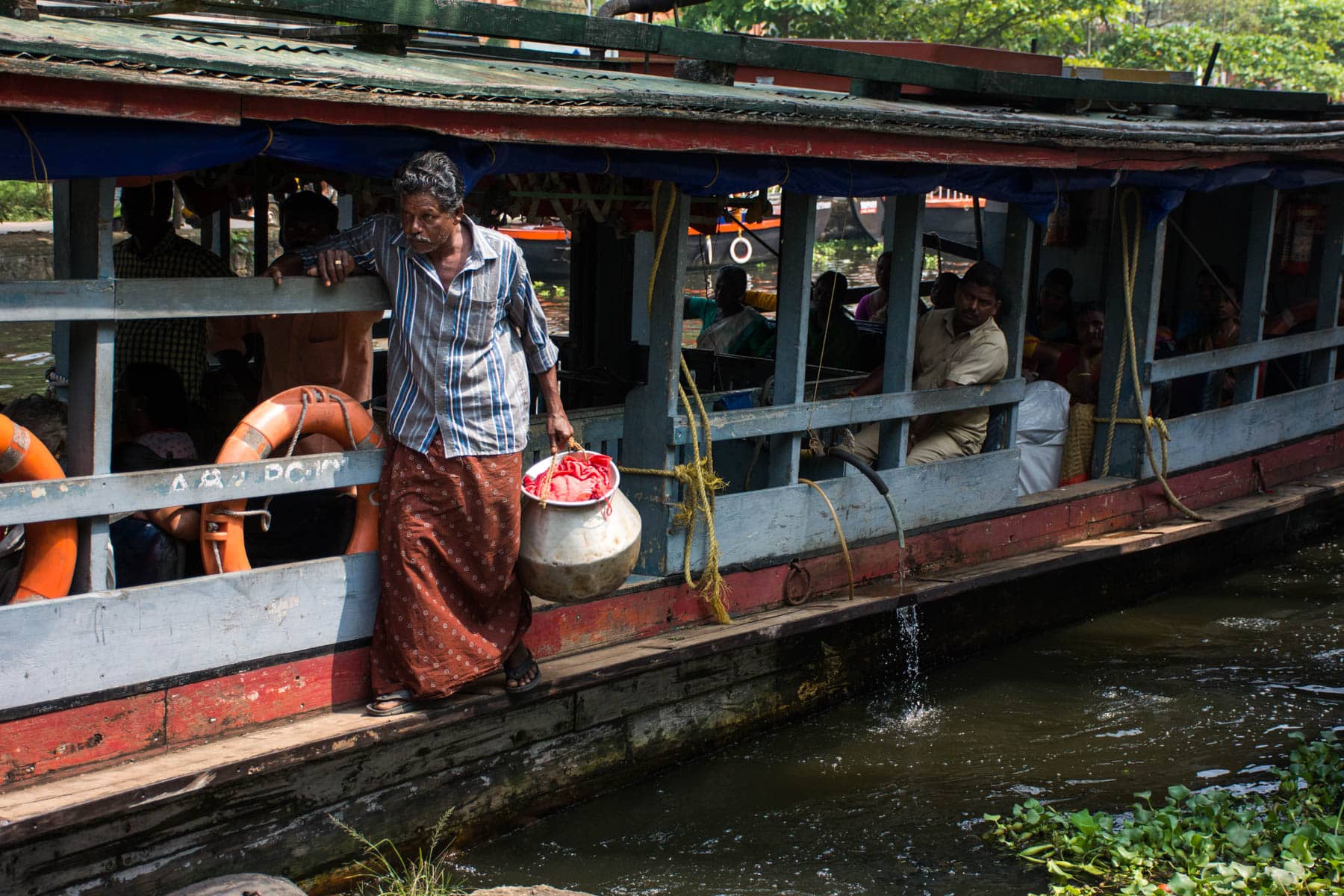
As I leaned over the edge of a wooden ferry, watching plants twirl in its wake, the gleeful laughter reserved for the end of school days announced primary students coming aboard. Most of the students moved in groups, but one boy sat on his own, a quiet island in the after-school rush. He wrote carefully in a workbook as his colleagues gradually disembarked, his face illuminated by sunlight reflecting off the pages.
After glancing up at some landmark invisible to my foreign eyes, he pulled his book into his backpack, clambered onto the edge of the ferry, and casually leapt across to land and disappeared down a village street before the ferry came to a complete stop.
From appearance alone, I’d never know the little boy had just navigated kilometers of waterways on his own to return home from school. Of course, to him, it was just another day’s commute.
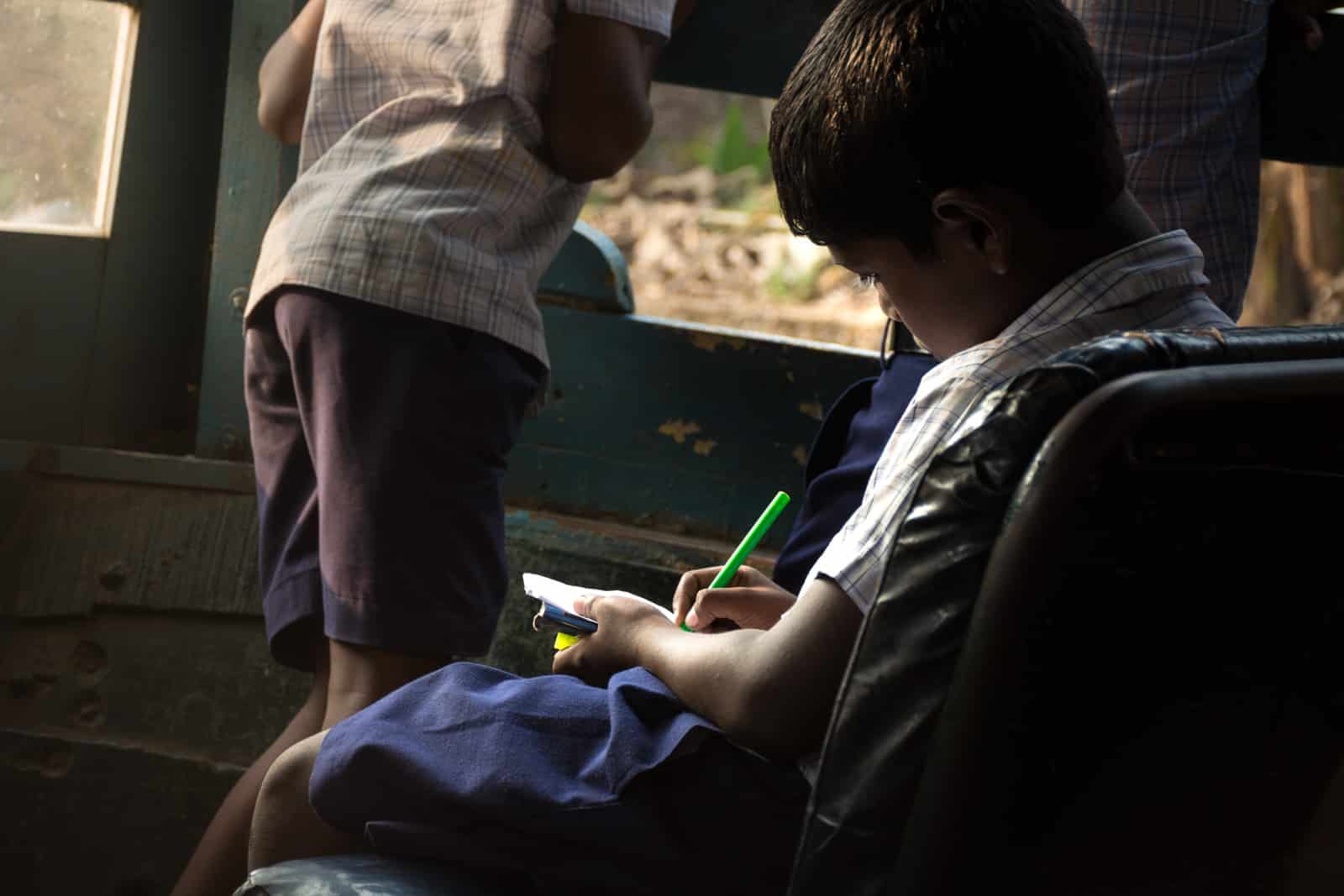
Divine dance
Not all of Kerala’s stories are layered in such subtlety. Some stories float languidly by, others burst forth in a fiery blaze at the darkest hour of the night.
At 4 AM on my last night in Kerala, I waited in the darkness of a modest village temple complex hidden among trees. Around me, locals buzzed with hushed anticipation. A lone bonfire cast a soft glow over the onlookers as they waited for the arrival not of dancers, but of gods.
For most of the year, theyyam dancers are ordinary humans. But, like seafaring Clinton or the schoolboy in Alleppey, there is more to them than initially meets the eye. Once a year, layers of hand-stitched costumes and hours of face painting transform the dancers into something extraordinary: it’s said the moment a theyyam dancer sees their reflection a mirror, their body is taken over by a god.
A sudden onslaught of pounding drums announced the god’s arrival. Young men wrapped in lungi sarongs dipped torches into the fire, setting the world ablaze as the god, Kutty, arrived.
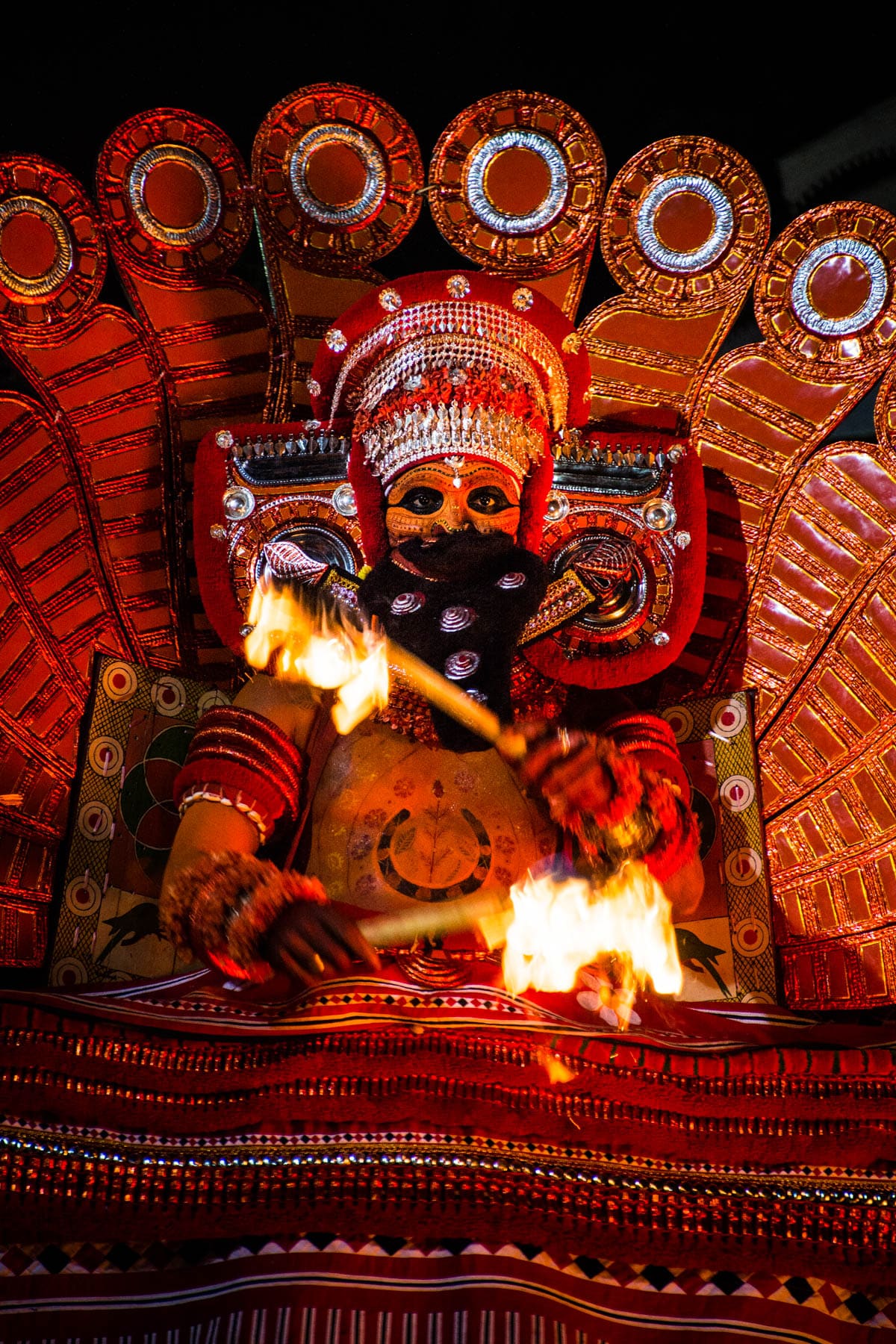
The whites of his eyes shone through layers of burnt orange paint, almost manic as he looked on with haughty authority of the divine. Cradled by a peacock-like headdress wider than his arms’ reach, his skirt’s decals glittered as he leapt and spun faster than my eyes could follow. Bare feet struck the dusty ground to an ever faster beat of drums. The crowd recoiled as he grabbed torches from the fire, flames licking dangerously close to a beard embedded with jewels.
The dance felt primal. Timeless. Like a language humans have spoken for thousands of years, and will understand for thousands more.
I couldn’t tell you how long the god came down to dance; only that he didn’t stop until lavender tinged the sky. The drums rapped with finality; the dancer stopped in line with the temple, panting as he was supported by other men. People moved forward with brass plates of flowers and sweets, offerings in exchange for blessings and advice. For the first time since his arrival, his eyes slid away from his astral plane to connect with the people surrounding him.
He was human once again, though no less extraordinary for it.
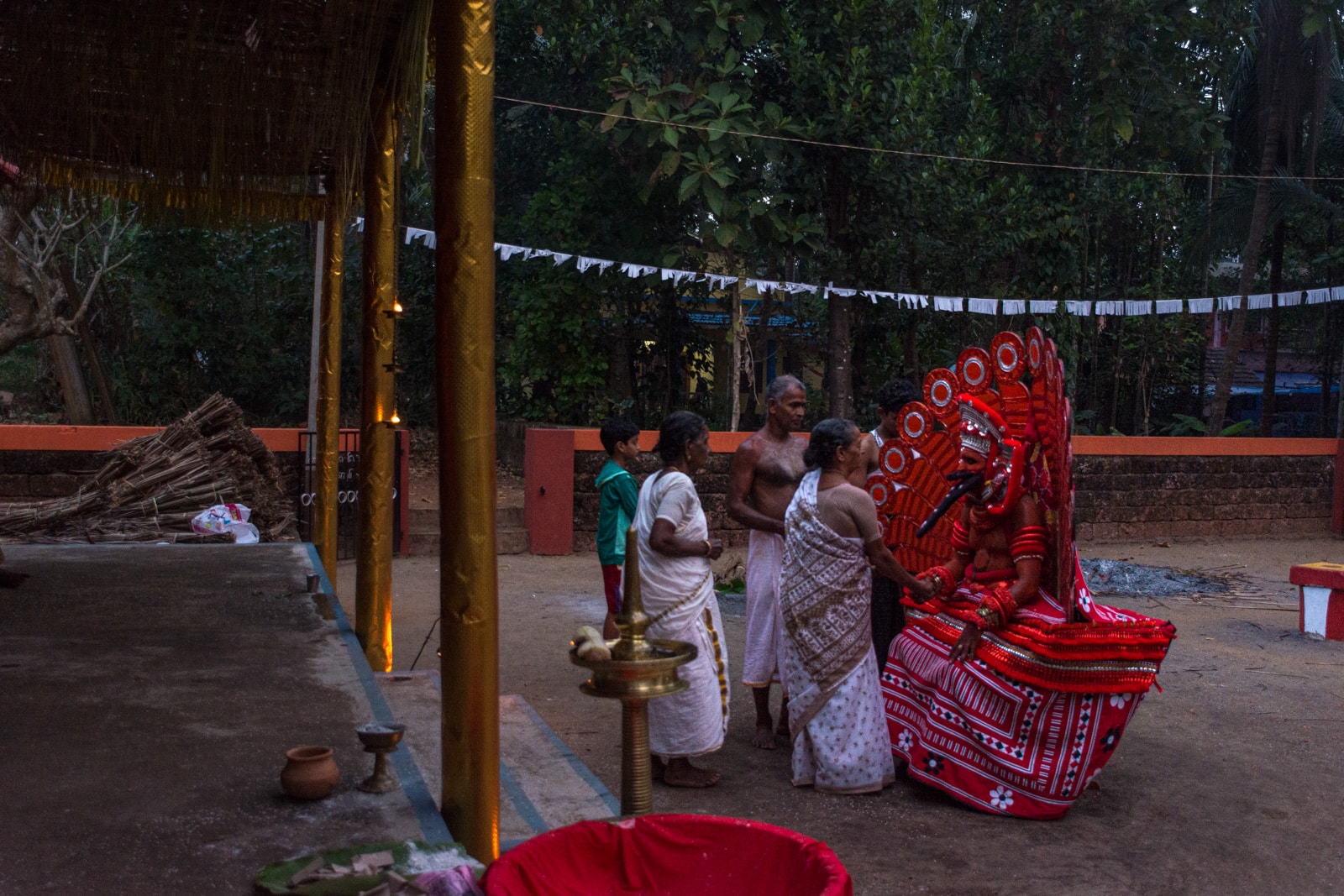
Travel in Kerala: how to find the extraordinary
Aldo’s Ark is Clinton’s homestay in Fort Kochi, a multicultural port city in southern Kerala. Don’t stop there—Kerala offers hundreds of local homestays throughout the state.
The Blue Yonder is a Kerala-based responsible travel company that connects tourists with local storytellers and artists… and pays them for their time.
Kerala Tourism’s theyyam calendar has dates of performances (most 2020 events were due to COVID). Travel Kannur can arrange theyyam tours.
Yay transparency! This post was sponsored by Kerala Tourism for their Human By Nature campaign. Never fear, the love and wonder for Kerala’s human stories are most definitely my own, drawn from my independent travel in Kerala back before anyone ever paid me to do anything.
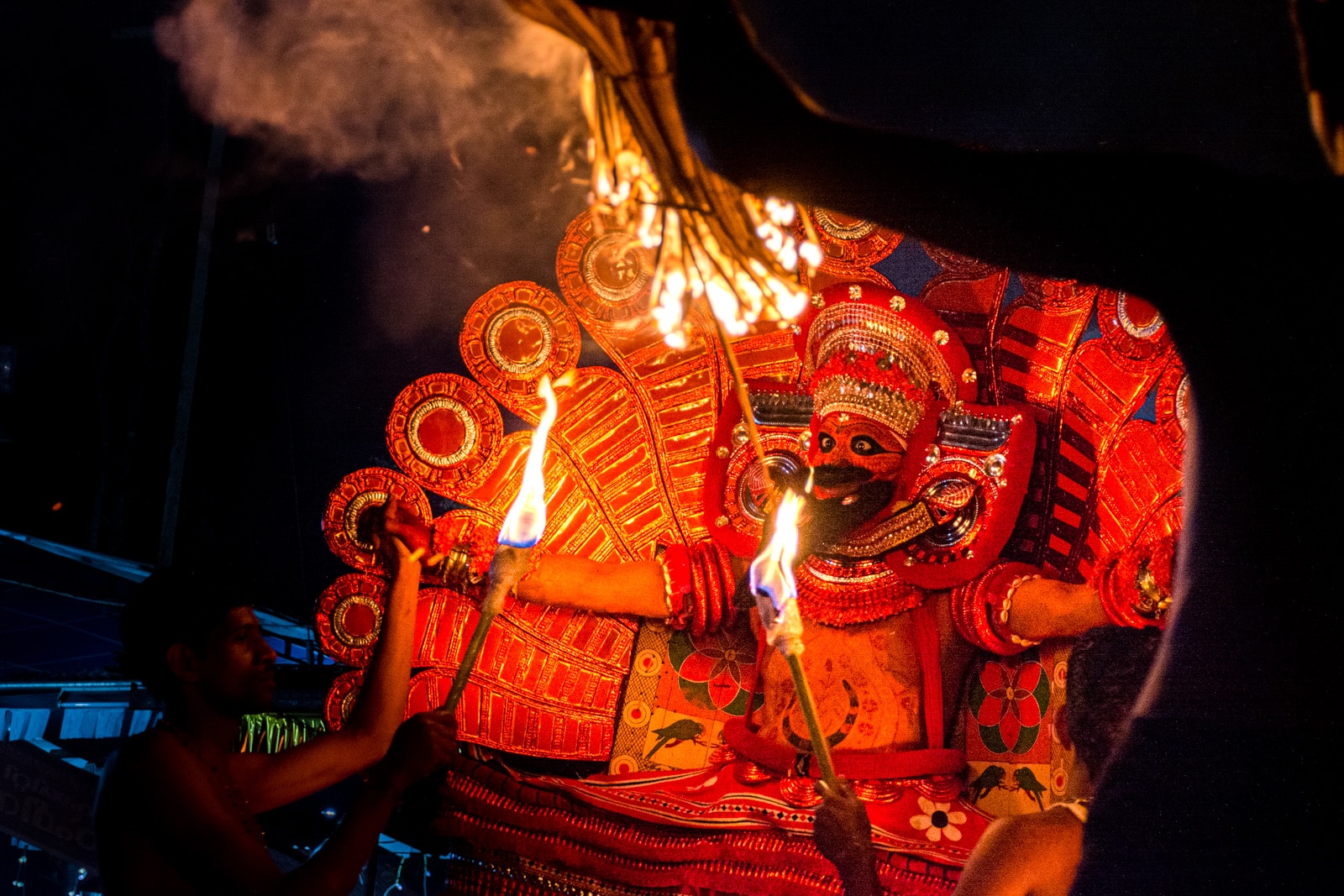
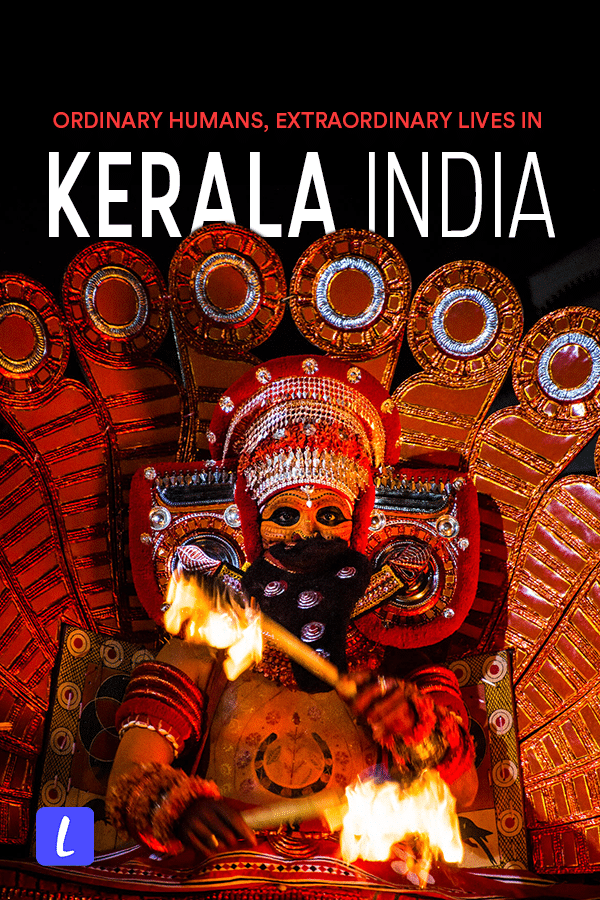
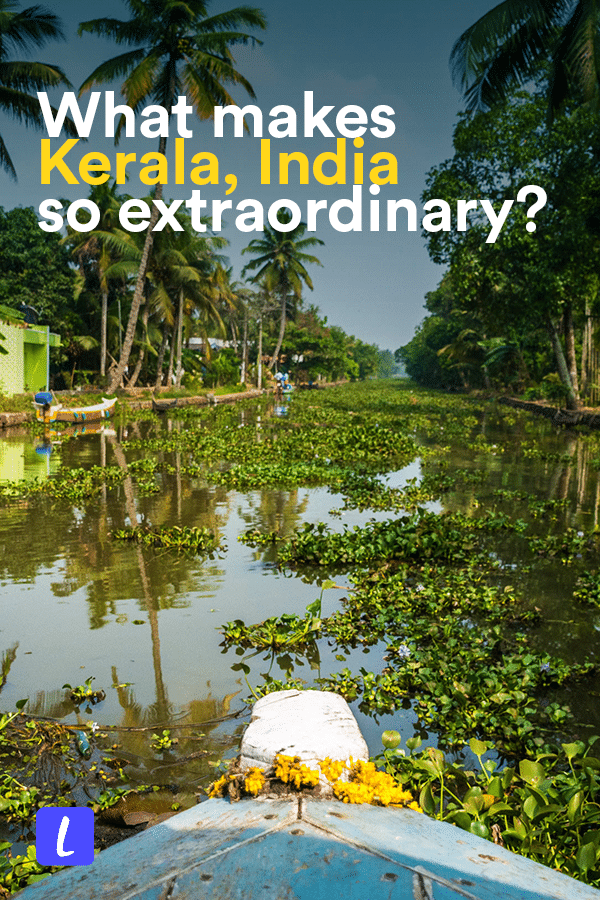


This was a really nice read – wish these were more personal stories like this on travel blogs these days.
Yo, same. It was a nice change of pace. Alas, we bloggers have all been reduced to content machines.
Beautiful, evocative writing. I loved how you concentrated on the three people, different yet united in bringing a lovely portrait of Kerala into vivid, yet poetic light.
Simple life yet a very good culture. What a lovely post and story, I will look forward to your future posts, also this makes me want to go to Kerala so I can experience their simple and lovely culture. Thank you for sharing this.